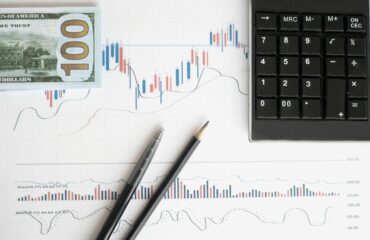by Marco Peyre
Foreword
Enrico Cesenni, OSI, is the Chief Executive Officer and Co-Founder of Asia Strategic Holdings. He graduated with a bachelor’s degree from Bocconi University in 2004, before going on to complete his MBA at INSEAD in 2009. Before co-founding Asia Strategic Holdings in 2013, Enrico worked in the Consumer and Retail Group at Goldman Sachs in London, as well as the Financial Institutions Group at Lehman Brothers and Nomura. In addition to managing Asia Strategic Holdings in Southeast Asia, Enrico also co-founded MACAN, a Singapore-headquartered private holding backed by European families investing in both emerging and developed markets. Enrico is a member of the Young President’s Organization and has been awarded the honour of Knight of the Order of the Star of Italy by the President of the Italian Republic.
Asia Strategic Holdings Limited is a London Stock Exchange-listed operator and developer of consumer-focused assets in emerging Asia, predominantly in Vietnam and Myanmar.
As a frontier investor, how did you adjust your investment strategy to deal with the nuances of developing markets?
Our investment strategy in emerging markets is tailored to account for the unique nuances of these markets. In such markets, we tend to take majority stakes in our portfolio companies, as opposed to buying smaller companies or minority stakes. This is because applying the level of change we require in these markets takes longer, and majority stakes provide us with the control we need to ensure successful implementation of our governance systems and processes.
Furthermore, we focus on investing in industries that we are familiar with, specifically in the broader consumer space, such as education, services, and hospitality. This allows us to leverage our knowledge and experience in these industries to manage our portfolio companies more effectively.
We also prioritise companies that we thoroughly understand and can control. This helps us minimise the risks associated with investing in developing markets, which can be more challenging to navigate due to factors such as political instability, limited infrastructure, and less developed legal and regulatory frameworks.
In a nutshell, our investment strategy in emerging markets involves taking a more cautious and deliberate approach that accounts for the unique nuances of these markets while leveraging our knowledge and experience to identify and manage successful investments.
In less mature markets, it seems that SMEs and even more mature businesses tend to lack accounting standards – how do you account for this in your investment screening process?
Generally, you need to have a lot of in-depth industry knowledge – you need to really understand the industry you’re looking into and do a lot of benchmarking analysis. We don’t necessarily rely on the numbers given to us, and we rebuild a P&L and balance sheet based on what we think the team should be doing from our market and industry knowledge. In addition, as one approaches due diligence in this regard, it is necessary to spend a substantial amount of time going through cash flows and rebuilding ledgers. There may be a lot of things that are hidden, willingly or unwillingly, in the P&L: management might think a company is profitable, but they could be forgetting to account for certain expenses because they are recorded improperly or on a cash basis. Or vice versa: they might have too many expenses due to family expenses going through a cash account. In these cases, it really is about getting a better sense of the business and scoping it out: defining what the boundaries of the businesses and family are.
Southeast Asian companies can also have very different histories depending on the country. In the case of Myanmar, there are a lot more family businesses with certain dynamics, whereas in Vietnam, you might have state-owned enterprises that professionalise and eventually get listed. In the case of state-owned enterprises—like any large organisation or NGO—they typically compete to get most of the budget, hence there may be more room for financial improvements. Conversely, for family businesses, it might be a bit harder to see where the expenses are going because people might not be too familiar with concepts like accruals or D&A – they might just build a hotel and run it down instead of making any salient investments in maintenance or CAPEX. It is therefore imperative to rebuild your ‘own’ theoretical financial statements and get a better-informed sense as to what the assets and liabilities might really be. Using the theoretical P&L and balance sheet, you test the validity of your assumptions with the company’s management team – people are generally honest, and this may also help them reflect on concepts they may have not been aware of.
How do you think Private Equity firms can be conducive to the economic development of frontier markets? Could you reference an instance where one of your portfolio companies generated profits as well as created a social impact?
Generally, I think that in order to make any sort of social impact, you first need to generate profits. That’s at the core of it. Any business that does not generate profits in the medium term is likely a charity, hence may not be sustainable in the long term. When looking at businesses in emerging markets, by definition most of them have an impact. This is due to the fact that these are markets where salaries are fairly low and poverty is abundant, hence anything that the company is doing to a certain extent makes an impact on the community. In this regard, I guess it would be ‘easy’ to generate some impact. Then there’s the question as to what constitutes a positive impact and how to measure it.
At Asia Strategic Holdings, we refer to the UN Sustainable Development Goals and, through this lens, we look at what we can do and how we can improve the communities around us. When we consider Exera, our security business, we employ over 1,700 people and probably generate a livelihood for over 10,000 people around them. By paying proper wages, appropriately compensating for overtime, and giving them time off to rest and be with their families, I suppose we have a knock-on effect on their families as well. With Wall Street English, our English adult education business, we educate ca.7,000 student. Most of the educational content that is available online today is in English, so, by teaching English to individuals, we enable them to access so much more content and the impact really is quite material. Investing in education businesses in emerging markets can have significant benefits for the communities in these markets, including increased economic growth and development, improved access to education, and the development of a skilled and productive workforce.
Any environmental reporting at the moment is limited because our portfolio does not include manufacturing businesses and our companies have a relatively limited supply chain. However, we are still generally very conscious of the impact that our businesses have on the environment and several years ago we discontinued any single-use plastic in our Ostello Bello hostels.
One last point, when analysing emerging markets, is that there will be good investments to be made in the transition from one technology to another. For example, in November 2022 Indonesia managed to lock in USD 20+ billion in investments to support its environmental transition. Nobody is able to move a country to net zero overnight, but it is a critical process, and it is necessary to find ways to have a positive impact transitioning without negatively affecting their surrounding communities. It’s about assessing the potential impact and finding the best way to get there.
What is the best investment advice you have ever received?
The best investment advice I have received is probably to look at things in the long term and to be able to endure through the noise and the volatility. For example, there is a lot of noise right now in crypto with people arguing either side of the trade. I think you should always determine what your fundamentals are and try to stick to them. Not in a blind way, but try to reassess your decisions. Record your assumptions and thoughts – note down what your original assumptions were and test them over time. It’s very important to take this approach of sticking to fundamentals rather than just going with the noise and/or the crowd.
What is some advice that you would offer to aspiring Investment Banking or Private Equity professionals currently in university?
Firstly, always do your own diligence. For example, if you want to learn about a sector – go to trade conferences and trade fairs. Go to meet the engineers, the salespeople, and the sector specialists – that’s the best way you get to know the reality. It’s good to read the reports prepared by large firms on an industry but you don’t always get to understand what’s going on from there. Map who’s who in the sector, the differences in the technology, the key customer bases, and the cultures of firms – delve deeper, way past the AI-generated marketing content. You might even understand for M&A and investment that maybe you can try to put two companies together, but the fit wouldn’t be great. It might make sense from an accretion standpoint, but from a cultural perspective, people may never assimilate. It’s important that you go on the ground, meet people, and do your own due diligence.
Secondly, build up the right mix of knowledge and network. It’s important that you are technically sound, and concurrently develop a solid network that you can use for deal generation and due diligence – it’ll be much more important as you grow professionally and will need to generate ideas and execute deals.
Do you think, in the next few years, ASEAN can command a larger portion of global AUM? What opportunities are now present in ASEAN that were not available in recent years?
I would say, mainly, investments would be operational – such as investments made by large companies, strategic players, and so on. There may be fewer private equity-type investments just because of portfolios shrinking in size, it’s likely that the percentage and the absolute value of money being dedicated to ASEAN will be smaller. And generally, the US is becoming more attractive now because of the yields on bonds – you might be able to make a pretty solid return in the US without taking on emerging market risk. ASEAN is growing operationally and from a core perspective, but it might be less attractive compared to developed markets because of rates being shifted.



Comments are closed.